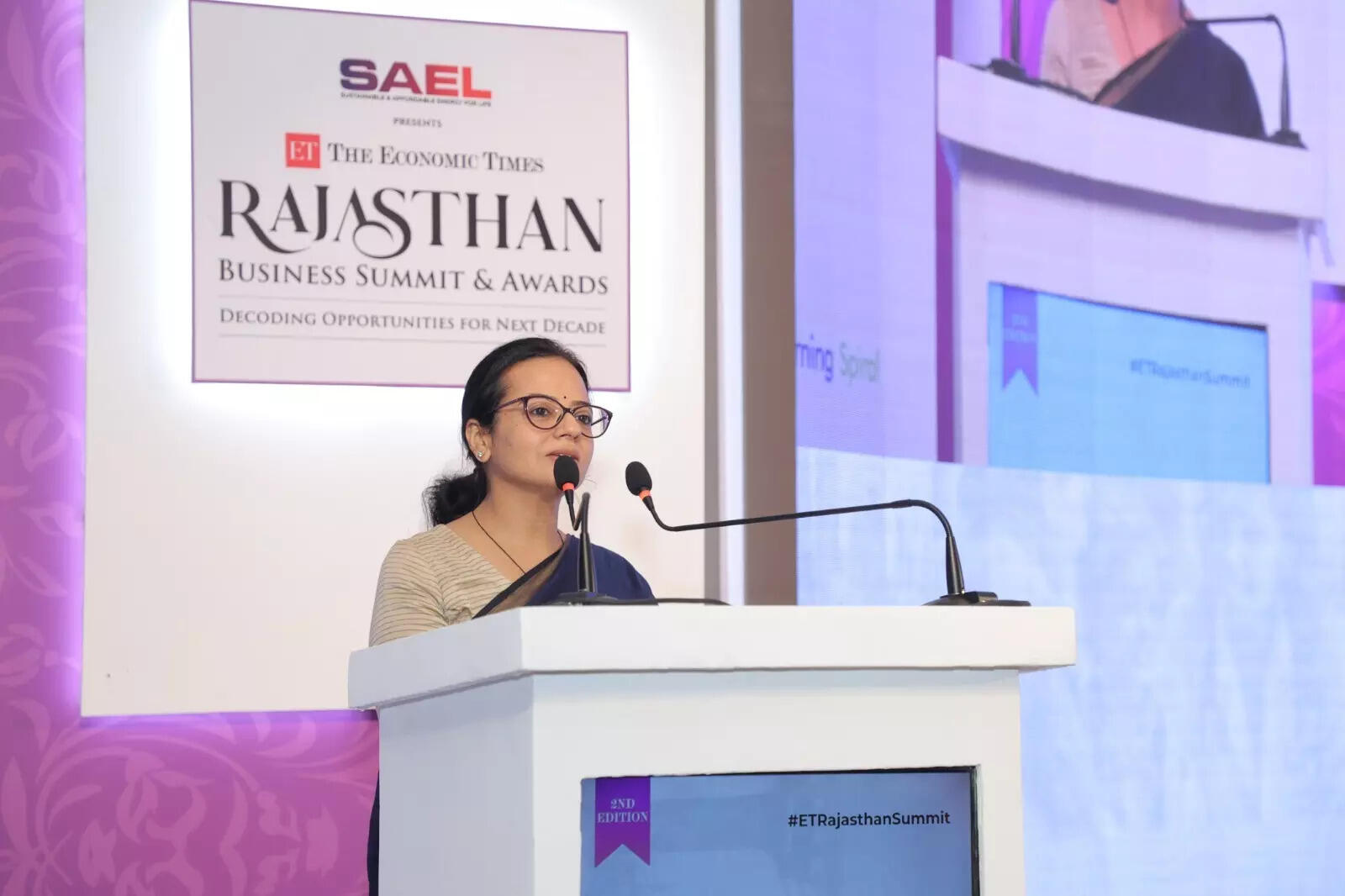
Education is the cornerstone of social transformation, economic growth, and national progress. It empowers individuals, strengthens communities, and prepares youth for the future. Guided by the National Education Policy 2020, Rajasthan is aligning its efforts with the vision of Viksit Bharat 2047. The focus is on reimagining schools as centres of innovation, inclusivity, and inspiration.
Addressing The Economic Times Rajasthan Business Summit, Anupama Jorwal, Commissioner, School Education and State Project Director, Samagra Shiksha Abhiyan (SMSA), emphasised that every individual in society is a “creature of education.” She highlighted how parents, teachers, schools, and infrastructure together create a holistic learning ecosystem. “The larger question we must ask,” she said, “is whether our children wake up every morning excited to go to school.”
Alignment with NEP 2020 and Viksit Bharat 2047
She noted that Rajasthan has aligned its initiatives under the Samagra Shiksha Abhiyan with the National Education Policy (NEP) 2020 and the Viksit Bharat Vision 2047. Jorwal emphasised its transformative shift from the old 10+2 structure to the 5+3+3+4 model, placing critical focus on early childhood education.
Research shows that 85 per cent of brain development happens by age six. This is why NEP stresses foundational literacy and numeracy, she explained, citing Rajasthan’s Prakhar Abhiyan and Nipun Bharat Abhiyan as key state-level interventions. The state has even introduced AI-enabled apps to track students’ progress in oral reading fluency.
Jorwal underlined the importance of mother tongue-based learning in the formative years while also supporting multilingualism. Rajasthan has piloted projects in tribal districts where reading material has been translated into local languages, aligned with NEP’s vision.
Moving away from rote learning, she said, the focus is now on experiential and joyful learning. “Tools like Jadui Pitara, storybooks, story cards, activity kits, and AI-driven curriculum development are being introduced at the school level. Collaboration with ICDS Anganwadis ensures early integration of children into schools with holistic progress cards to track development across departments,” she added.
Addressing secondary education and infrastructure gaps
While elementary education has seen progress, Jorwal admitted that challenges remain at the secondary level. “The pyramid narrows as students progress to higher grades,” she said, stressing the need for improved infrastructure and accessibility.
Under Samagra Shiksha and with CSR partnerships, Rajasthan is expanding classrooms, toilets, libraries, ICT labs, science and mathematics labs, and integrated learning facilities. Residential hostels have also been approved under PM-JANMAN (Pradhan Mantri Janjati Adivasi Nyaya Maha Abhiyan) and PM DAKSH (Pradhan Mantri Dakshta Aur Kushalta Sampann Hitgrahi) Yojana, particularly for students from socio-economically disadvantaged groups and tribal areas.
Jorwal highlighted vocational and skill education from Class 6 onwards as a critical component of NEP. “The coming 25 years are India’s golden time. To ensure this, our youth must be equipped with both knowledge and skill,” she said.
Breaking the traditional barriers of science, commerce, and arts, NEP now allows flexibility across disciplines. Teacher training programmes, AI-enabled assessment tools, and capacity-building workshops are being scaled up to ensure improved learning outcomes. Jorwal made a strong appeal for community and industry participation, noting that government efforts alone cannot achieve NEP’s ambitious vision. CSR contributions have already supported infrastructure, ICT labs, teacher training, mental health programmes, hostel-based initiatives for girls, and even exposure visits for government school children.
“These experiences – whether it’s a library in a rural school or a helicopter ride for children from marginalised backgrounds – ignite motivation and expand horizons,” she said.
Towards Viksit Rajasthan 2047
Concluding her address, Jorwal linked education with Rajasthan’s long-term growth roadmap: “Our Prime Minister has envisioned Viksit Bharat 2047, and under the leadership of our Chief Minister, Rajasthan has prepared its Vision 2047 Document. I am confident that we will ride to Viksit Bharat and Viksit Rajasthan on the crest of education.”
She called for unity, passion, and sustained partnerships to continue this journey, positioning education as the bedrock of Rajasthan’s future development.
